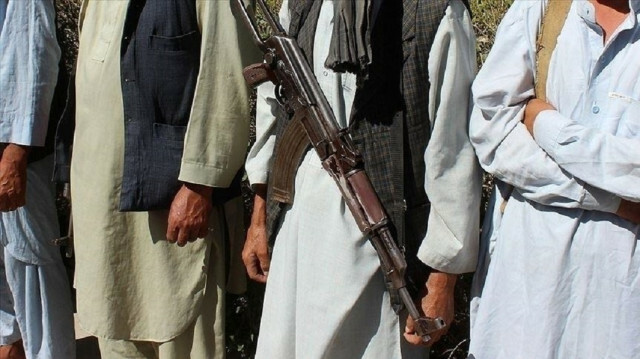
Undeterred Taliban march on Aybak city, making it 8th provincial capital overrun by insurgents
In a push to repel advancing Taliban from urban centers, the Afghan forces on Monday claimed to have killed over 500 insurgents in air and ground offensives in the past 24 hours.
The Defense Ministry said the operations were conducted in Nangarhar, Khost, Logar, Paktia, Kandahar, Herat, Farah, Jowzjan, Samangan, Helmand, Takhar, Kunduz, and Panjshir provinces.
Some “579 Taliban terrorists were killed and 161 others were wounded as a result of Afghan ANDSF (National Defense and Security Forces) operations,” it said.
The Taliban, meanwhile, continued advancing on urban centers after capturing smaller administrative districts in the past weeks.
Zabihullah Mujahid, the group’s spokesman, said in a statement that they marched on Aybak, the capital of western Samangan province.
“The ‘Mujahideen’ (Taliban) entered the city (Aybak) and took control of the general prison. The ‘fleeing enemy’ is under fire ... the war continues,” he tweeted, claiming to kill scores of security forces personnel.
Samangan became the eighth provincial capital after Qala-e-Nau, Lashkargah, Zaranj, Sheberghan, Kunduz, Taluqan and Sar-e-Pul to be overrun by the Taliban.
The war between the Taliban and Afghan forces has intensified as foreign troops withdraw from the war-torn country by Sept. 11.
- War-weary IDPs call for help
Many of the war-weary Afghans displaced by the latest wave of violence staged a protest demonstration in the capital Kabul against the raging bloodshed.
One of such internally displaced persons (IDPs), Abdul Hakeem from Kunduz province, told Anadolu Agency that the international community, particularly the Muslim world, must intervene for peace in Afghanistan.
“Muslims of the world should not remain silent, and act to bring relief to the so many civilians trapped in towns and villages due to the war between the government forces and the Taliban.”
- Extremely concerned
Under-Secretary-General for Humanitarian Affairs and Emergency Relief Coordinator Martin Griffiths said he is "extremely concerned by the deteriorating situation in Afghanistan."
"Afghan children, women and men are suffering and forced to live with violence, insecurity, and fear every day," he said in a statement.
"There are grave concerns for women’s survival and basic human rights. Forty years of war and displacement, compounded by climate shocks and COVID-19, have left almost half of Afghanistan’s population in need of emergency aid."
The UN official reiterated that a safe, secure, and sustainable future in Afghanistan can only be achieved through successful peace negotiations.
Hello, the comments you share on our site are a valuable resource for other users. Please respect other users and different opinions. Do not use rude, offensive, derogatory, or discriminatory language.
The floor is all yours.








